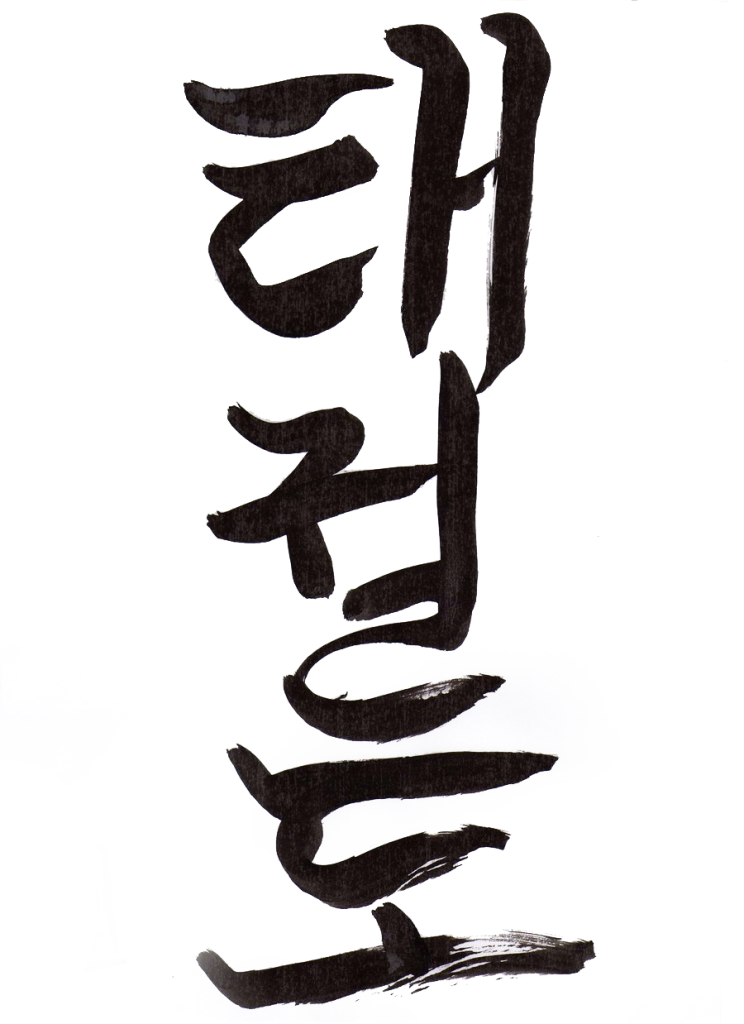For as long as I can remember, I have wanted to be a teacher.
Many of my earliest influences, beyond my family, were my teachers. I never admired professional athletes, or emulated Hollywood celebrities, and though I did have some rock and roll fantasies, it was creative educators who were the real rock stars for me. I pursued my education with this career in mind, and for most of my twenty five year rabbinate, I saw myself primarily as a teacher among the many roles that a clergy person p lays.
lays.
For all those years, my teaching centered on Judaism and Jewish practice. I read books. A lot of books. I taught text and ancient
literature to all ages, and even most of the liturgical and spiritual learning were driven by prayerbooks and religious poetry. It was a lot of neck up teaching.
Six years ago, I began studying Taekwondo. Even at the very beginning, I was immediately struck by the intense physical training, and I began to immerse myself in physical learning in a way that I had never done before.
I had always been athletic. I was naturally good at sports, and enjoyed a lot of different outdoor and athletic activity. But I was mostly a musician and an academic. Whatever talents I had as an athlete were gifted to me, and I had never really worked over time to develop them.
Everyone who studies at ATLUTKD knows that after a hard work out, it is going to hurt a little bit. Everyone knows that some of the exercises are going to reveal to you sore muscles you didn’t even know you had. Physical training is hard, moaning is not allowed, and I sometimes feel like I just want to go to the library and study. But I continue to be drawn back into the physical and martial sides of Taekwondo, and have grown more comfortable speaking of myself as an athlete and not only as an academic.
I still have a thirst for intellectual pursuits. The physical training of Taekwondo, and the growing part it plays for me are not a replacement of the intellectual training of my earlier spiritual career. I am, instead, coming to understand that the two offer a valuable balance. Balanced training includes the development of body, mind and spirit.
Much like academic diplomas, taekwondo practice does not end with a 1 Dan black belt. And much like intellectual growth, Taekwondo becomes increasingly about refining what has been learned in earlier years, and honing the basic skills to a far more meaningful degree. A kick might be simple to describe, and even to learn, but it is difficult to master. The deepening of my own practice, and the focus on refining previously acquired, basic techniques while learning new forms, has raised my appreciation for the fundamentals of Taekwondo and for the personal growth that is possible at each stage of that practice.
For me, a significant part of that continuing practice has been to become an instructor for Master Mast. Having encouraged me to teach on a smaller scale at camp this summer, Master Mast invited me to be a regular teacher at our school. That’s kind of like having Mick Jagger ask you to sit in on The Stones’ next album. I am honored to be a teacher here, and its impact on my own Taekwondo practice has been profound.
On the most basic level, to be a good teacher, one must know the subject well. Becoming a Taekwondo teacher requires me to not only know each and every form correctly, but also to understand how to break the forms down into smaller learnable steps. The teacher cannot gloss over small imperfections in their own forms if they are to recognize them in their students. Setting the example for the students requires not only technical correctness, but also conveying the importance of striving continually for self-reflection and improvement.
Teaching also gives me a more connected experience of the community. Everyone has their own schedule for coming to the dojang, and becoming a teacher has introduced me to so many more of the students and families in our Taekondo community. It has reaffirmed what I have always known – that we are a diverse and multi-generational community. I have had the opportunity to see even more closely the friendship, courtesy and respect that we show each other. It is such a pleasure to see the span of years and levels in a single day’s students.
A good teacher is identified by their students. A good teacher always wants the students to succeed and even to surpass the teacher. My own Taekwondo spirit and the enthusiasm I have for my own practice have been substantially expanded by the opportunity to teach it to others and to share it with them. Helping them to improve, encouraging them, offering critique and training and pushing them to reach for more and better have lifted me up. Building muscle and building technique are joined by building relationships with the students, and helping them to understand the lessons of Taekwondo that are beyond the physical techniques – the five tenets, and the lessons of personal character, spirit, and awareness.

